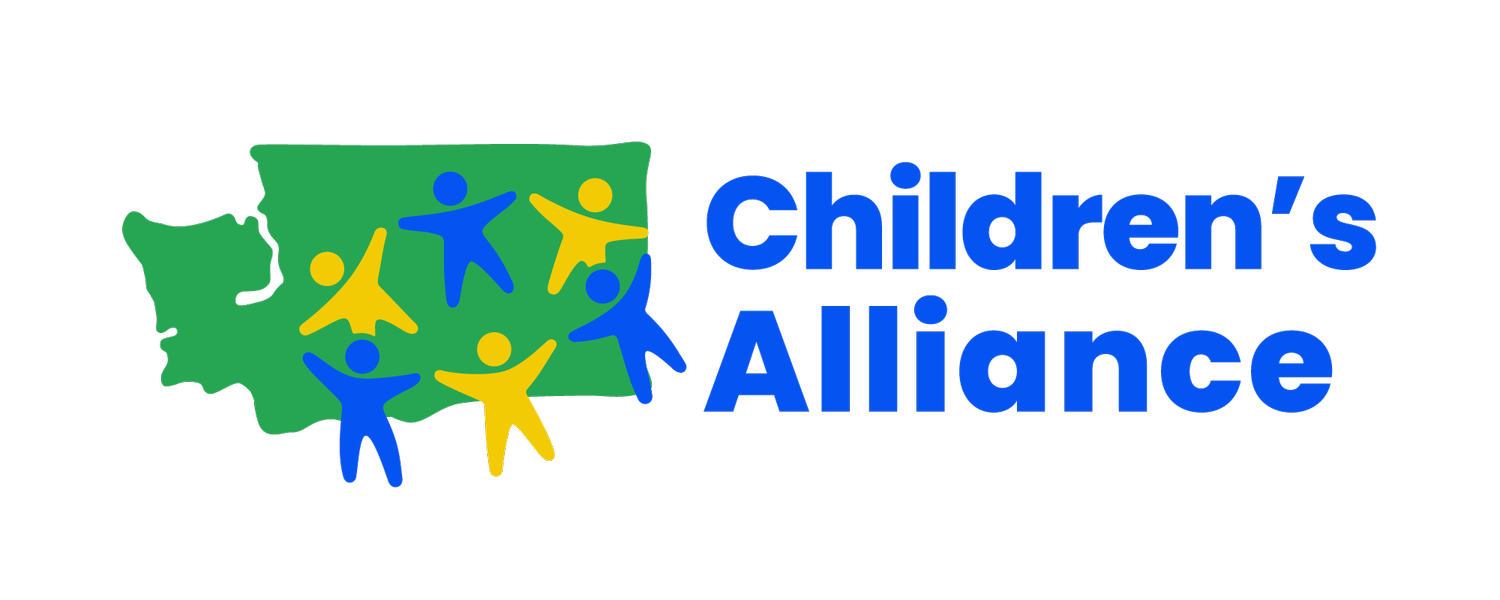PATH FORWARD 2024 RECAP: ADDRESSING YOUTH BEHAVIORAL HEALTH AND PROGRESSIVE REVENUE IN WA
Children in Washington are struggling with mental and behavioral health issues at unprecedented rates and right now our state is not doing enough to help them. Furthermore, we are facing a $10 billion budget shortfall that could result in agencies cutting crucial programs for kids and families. At this year’s Path Forward event, Dr. Stephan Blanford spoke with Senator Noel Frame (36th Legislative District), Rep. Lisa Callan (5th Legislative District), and Reid Saaris (author of Children’s Alliance’s new report on youth mental health in Washington) to discuss policy solutions that could help us address both of these issues.
Watch the full conversation below:
Key Takeaways
It is imperative that when we look for solutions to the youth mental health crisis, we get input from the kids and families most impacted. Rep. Callan emphasized the importance of this in her work with the Children and Youth Behavioral Health Work Group: “When we start talking about providing services, we need to make sure that we are reaching every community, every youth, from every perspective in Washington state. Getting into those neighborhoods, having those deep conversations, and building the system from the lived experience of our youth and our caregivers first. So we’re not building a system and asking our children and families to come to it, we’re building a system based on what help looks like to them.”
Throughout her time working on this issue, Rep. Callan has often heard that many families have difficulties accessing care, especially in rural communities where there are far fewer behavioral health providers. Reid Saaris pointed to some solutions included in our most recent report that could help, including the creation of a universal platform through which all Washingtonians can access care and expanding access to teletherapy. He also called attention to limiting social media use as an effective preventative strategy: “Research suggests that kids being off social media for a month may be up to 40% as impactful as individual therapy. So you can imagine starting to enforce the existing age limits of 13 on the social media companies, or considering even strengthening those as the Surgeon General advises, so that those companies are actually held accountable for not collecting children’s data and not profiling them and micro-targeting them with addictive feeds and algorithms.”
Although many of the policy solutions discussed are relatively low in cost, the state still needs to address the looming budget deficit. Senator Frame suggested that one way we could do that would be to enact a wealth tax of 1% on financial assets valued at $250 million or more. Senator Frame pointed out: “We have a great economy today, but if we don’t start capturing the value of that and reinvesting it back into our state we’re not going to continue to have that economy. We have a massive housing shortage, the cost of child care is astronomical, and more and more companies are going to have a hard time not just locating here, but attracting employees to the state if they can’t find a place to live or put their child in child care.”
Both lawmakers emphasized the importance of advocates speaking with their representatives and telling their stories. Each legislative session, Children’s Alliance works with advocates from across Washington to help get community voices heard. Make sure you’re signed up for our email list, or contact us at action@childrensalliance.org, to find out how you can get involved!
